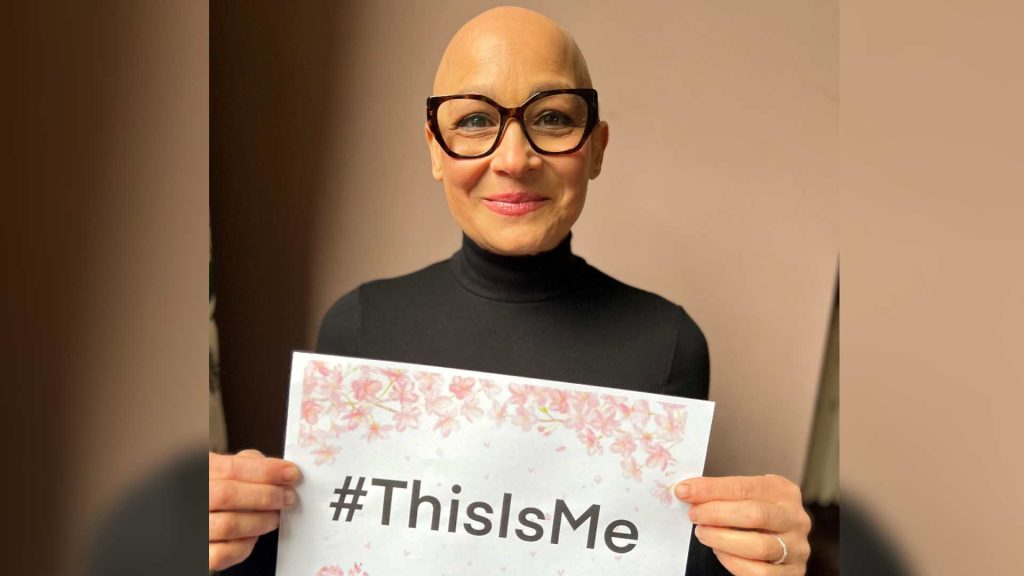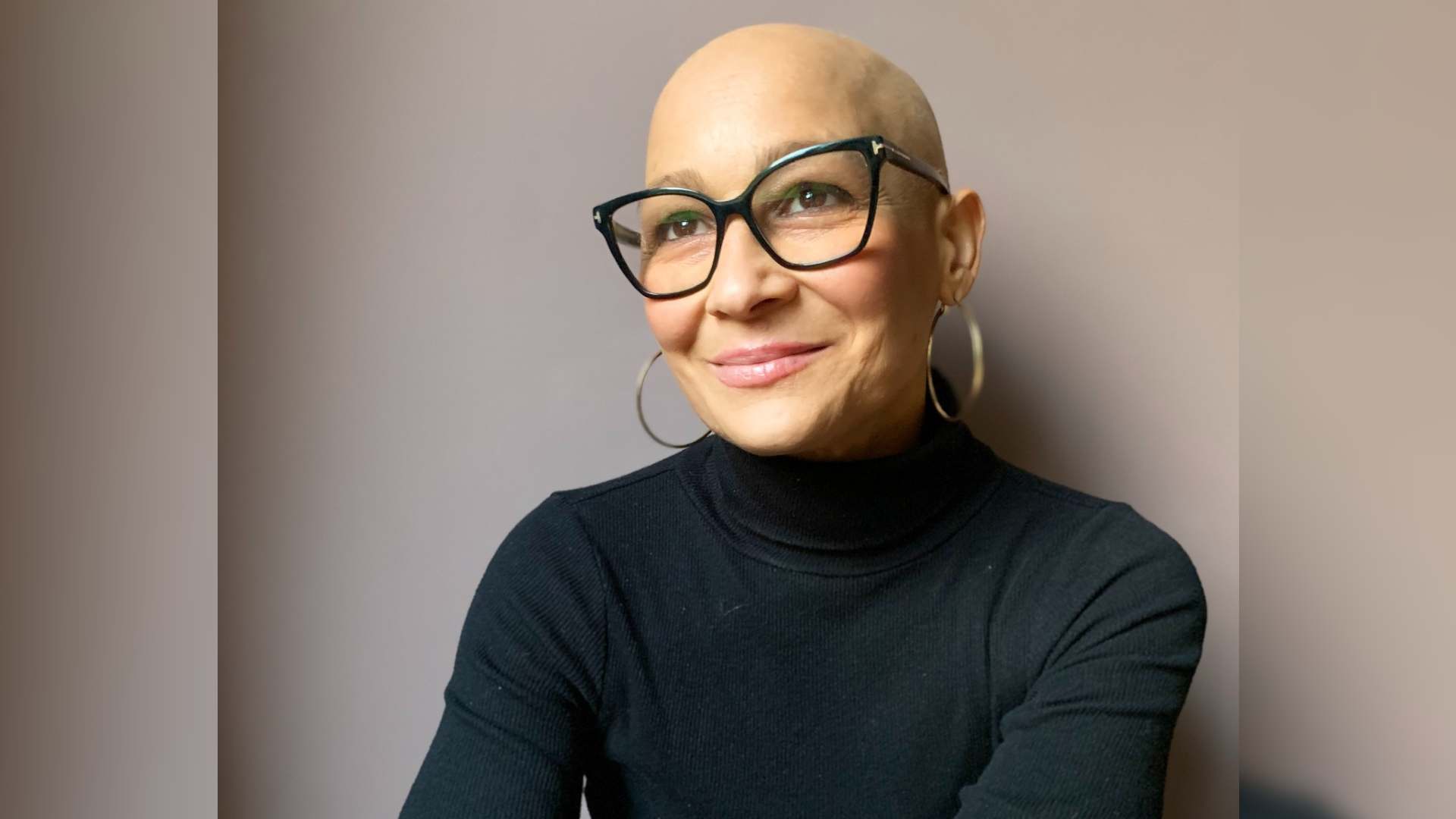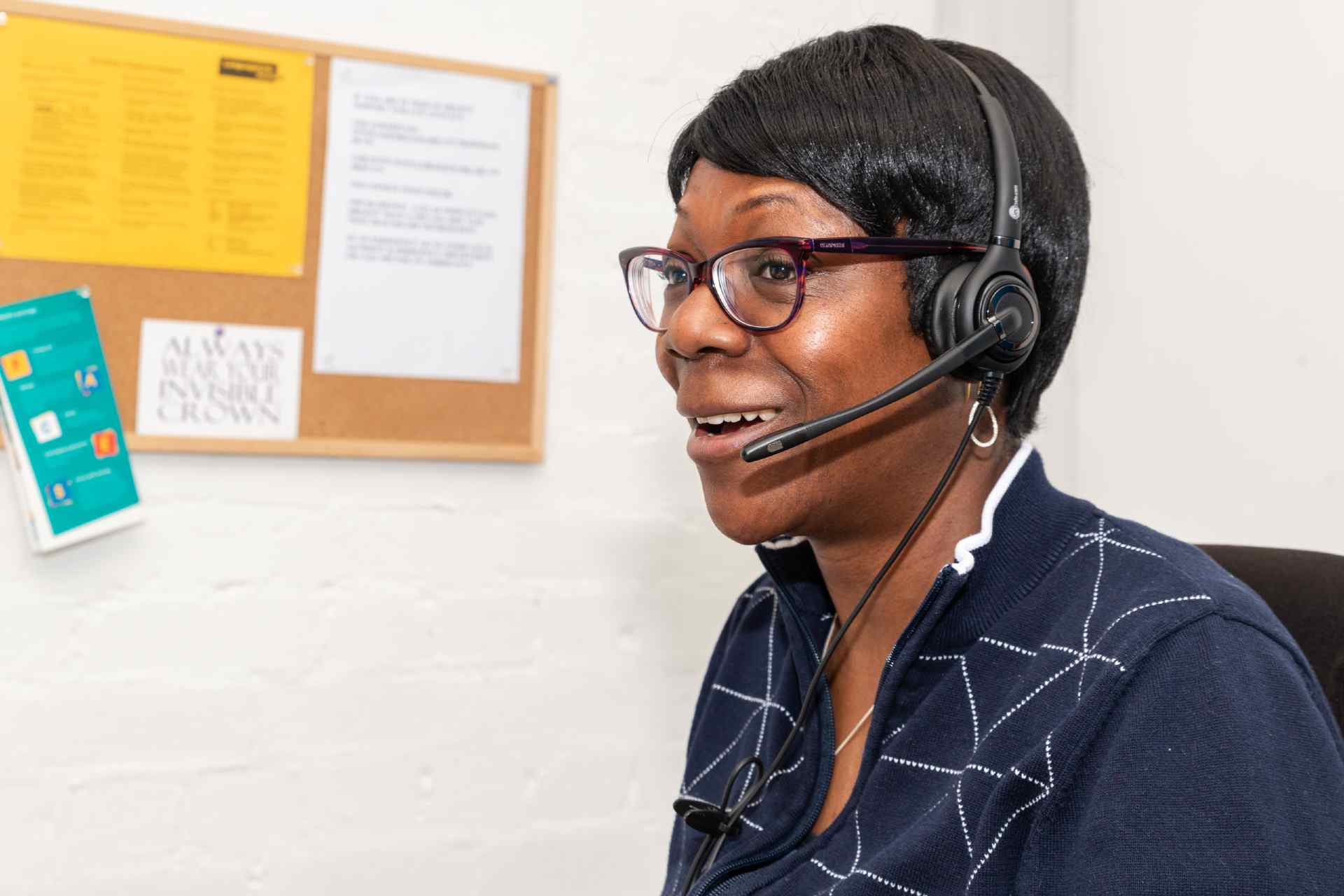I’m Zelda, I’m 52 years old and four years ago, a few months after my father died, all my hair fell out…
Alopecia is an unpredictable autoimmune disorder that makes your body reject your hair. I’ve experienced the whole smorgasbord – alopecia areata (patchy hair loss), totalis (losing all the hair on my head), and universalis (losing every hair on my body). Whilst alopecia is not life threatening, it is life altering and is as much a mental challenge as a physical one.
In my family, I am the positive strong one. I get things done and my three kids and husband rely on me to solve everyone’s problems. So, when I was dealing with grief, perimenopause and hair loss I tried to keep that façade up. In reality, I’d lost my sense of self and my identity. I was trapped in my negative thoughts and didn’t recognise the alien in the mirror. I kept telling myself “it’s only hair”, “don’t be so vain”, “pull yourself together”.
A friend whose daughter had alopecia areata since childhood told me how she’d decided not to wear a wig anymore and messaged her classmates to tell them she’d look different when she went into school the next day. Her bravery was so inspiring to me, and I sent a WhatsApp to my parent group, which put an end to the cancer speculation that I knew had formed.
I’ve learnt so much about myself over the last few years. It’s not weak to ask for help. My experience is valid, it’s not just hair and it’s not vain to be upset that you look different.
It felt like a weight had been lifted, no more secrecy. Being open about my hair loss created a new challenge though. Strangers and even people I knew would be so relieved that it wasn’t life threatening that they would tell me how lucky I was that it was “only hair”. I felt ashamed that I was so upset at my baldness and ended up agreeing with them.
Alopecia affected us all as a family. Understandably, we were scared and unsettled by my sudden change in appearance. It was especially challenging for my son who was at that early teen phase, discovering who he is and keen to fit in. He was uncomfortable to be with me when I was testing going out without anything on my head. I can’t blame him, so was I! I realised that if I couldn’t accept myself, how could he or anyone else?
Then lockdown happened, which was a blessing and a curse. It enabled me to start to heal, with the love and support of my children and husband and in the safety of our home. Me being bald slowly became completely normal to all of us. I also discovered Changing Faces on Instagram. Reading real stories of life with a whole range of visible differences and following other inspiring accounts really helped with my own acceptance, while validating my experiences. The supportive and inclusive community I found on social media helped me to feel less alone and helpless.
The downside of lockdown meant that I didn’t get to see a consultant dermatologist for almost two years, by which point I was clinically depressed. I was prescribed medication, which took the edge off my anxiety and gave me enough headspace to acknowledge the impact alopecia had on my mental health. I finally opened up to family and close friends who loved and supported me. Today they are my medication.

Zelda is proud to be herself
I’ve learnt so much about myself over the last few years. It’s not weak to ask for help. My experience is valid, it’s not just hair and it’s not vain to be upset that you look different. I’m happy to talk openly about my condition and explain that living with a visible difference can be challenging. I’ve learnt to be kinder to myself and that it’s okay to be angry if people comment or stare. I’ve also realised that even when you feel invincible, fear and doubt can catch you unawares at any time and that’s okay too.
Alopecia has made me, and maybe even more importantly my teenage kids and their friendship group, kinder and more empathetic. In a society where we are bombarded with photoshopped and filtered images of unrealistic beauty ideals, it’s a joy to me that my teens are educated on the impact that living with a visible difference can have. They fully understand that language matters and are even more amazing for it!
My son is so proud of me, he champions me to his friends, encouraging me to “just do you mum”.
I am so honoured to be a Changing Faces campaigner. Putting myself forward for the role made me realise just how far I’ve come on my self-acceptance journey. We should not have to apologise for who we are purely because we look different. I hope that in some small way sharing my story and taking part in Changing Faces’ campaigns will help someone, somewhere who is finding it difficult living with a visible difference. You are not alone; life will get better and our wonderful, beautiful community is here to support you.

